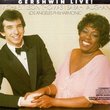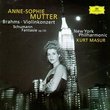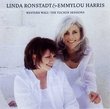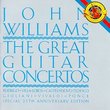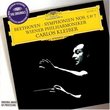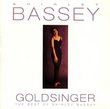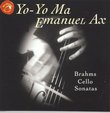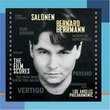| All Artists: Miklos Rozsa, Yoel Levi, Atlanta Symphony Orchestra, Robert McDuffie, Lynn Harrell Title: Rozsa : Violin Concerto, Op. 24; Cello Concerto, Op. 32; Theme and Variations for Violin, Cello, and Orchestra, Op. 29a Members Wishing: 0 Total Copies: 0 Label: Telarc Release Date: 2/22/2000 Genre: Classical Styles: Forms & Genres, Concertos, Symphonies, Instruments, Strings, Symphonies Number of Discs: 1 SwapaCD Credits: 1 UPC: 089408051821 |
Search - Miklos Rozsa, Yoel Levi, Atlanta Symphony Orchestra :: Rozsa : Violin Concerto, Op. 24; Cello Concerto, Op. 32; Theme and Variations for Violin, Cello, and Orchestra, Op. 29a
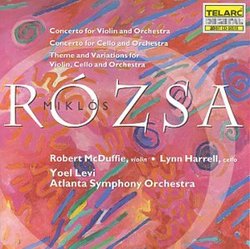 | Miklos Rozsa, Yoel Levi, Atlanta Symphony Orchestra Rozsa : Violin Concerto, Op. 24; Cello Concerto, Op. 32; Theme and Variations for Violin, Cello, and Orchestra, Op. 29a Genre: Classical
Like other European composers of his generation, Miklós Rósza, born in Hungary in 1907, found political and creative sanctuary in Hollywood, where he wrote concert music and many notable film scores. These three ... more » |
Larger Image |
CD DetailsSynopsis
Amazon.com Like other European composers of his generation, Miklós Rósza, born in Hungary in 1907, found political and creative sanctuary in Hollywood, where he wrote concert music and many notable film scores. These three works clearly show that he never lost his roots in his native folk music. The violin concerto, a lush, romantic piece, was written at the urging of Jascha Heifetz and is tailored to his and his instrument's strengths, with singing, soaring melodies, brilliant passage work, and a very effective cadenza. Later, Heifetz and cellist Gregor Piatigorsky asked Rósza to write a piece for them; the "Theme and Variations" is the slow movement of a longer work. It is beautifully written for both instruments; based on a Hungarian melody, the variations are wonderfully inventive and varied in mood, character, and expression. The Cello Concerto too is extremely difficult and virtuosic, often quite wild and aggressive, and full of contrasts. The orchestration is excellent throughout, but not too heavy. The performances could not be better: McDuffie and Harrell surmount all the formidable technical challenges easily, their tone shimmers and glows, and their heartfelt but always refined expressiveness brings out the best in these unjustly neglected works. --Edith Eisler Similarly Requested CDs
|
CD ReviewsForget all those movie scores F. Behrens | Keene, NH USA | 03/12/2000 (5 out of 5 stars) "Miklos Rozsa is probably more recognizable as the composer of about 100 film scores than of classical music. In fact I have transferred the sound track of the "Thief of Bagdad" to a sound cassette just to enjoy his background music and will do the same for "The Jungle Book" as soon as I can find a video of that earlier Sabu film. However on this new Telarc release we have three of his symphonic works, (CD-80518), each of which shows not only the classical side of this composer but also his Hungarian roots. Each of these works was written by commission: the first for Jascha Heifetz, the second for Janos Starker, the third for Heifitz and Gregor Piatagorsky. That alone should prepare us to expect virtuoso demands for the soloists. I feel that violinist Robert McDuffie and cellist Lynn Harrell leave little to be desired; while Yoel Levi, a conductor I have not exactly admired in the past, keeps the excitement going with his artists and the Atlanta Symphony Orchestra. Drawing upon the same musical traditions as did Liszt and Brahms for their Hungarian pieces, Rozsa nevertheless brings them into the 20th century without neglecting those audiences who still expect emotion and melody rather than intellectual manipulation of tone rows or minimalism. To each his own, but I feel most of you will find moments of great beauty and many more of musical fireworks in this generous 72 minutes of music unfamiliar to most listeners." Very fine performances of Rozsa's great concertos! Choi, Yong-Sung | Seoul South Korea | 07/04/2000 (5 out of 5 stars) "This is a tremendously beautiful violin concerto. It has endless lyrical melody, intense rhythm, bold orchestration, structural integration, and drama. This is the 3rd recording of the work, and I think this is the finest. Robert Mcduffie is a world top class violinist. His sweet and sensual tone matches the bitter-sweetness of the work very well. You may discover multi-facet of Rozsa's masterpiece through Mcduffie's brilliant interpretation of the work. The playing of ASO under Levi's direction is first rate. Harrell's reading of Rozsa's dark, inner Cello Concerto is more strong and concerntrated than those of Smith on Koch, Rejto on Silva. Especially the driving urgency of the outer movements of the work is expressed by soloist and orchestra very well. Theme and Variations is the second movement of masterful Sinfonia Concertante(good performance from Gruppmann and Boch with NZSO conducted by Sedares, coupled with great Viola Concerto, on Koch). Recorded sound is very clean and clear. Strongly recommended." A sentimental favorite Ilse von Hoffmanstahl | California | 07/19/2006 (4 out of 5 stars) "I found this CD after a long search, and I was absolutely ecstatic to finally find it. This was one of the earliest classical recordings I ever purchased (my collection has since grown considerably), and it's probably the one I love the best--although I confess that I don't just love it for its beauty, but because the first two pieces of the Concerto for Violin and Orchestra--the Allegro and Lento cantabile--were used in Billy Wilder's 1971 film, "The Private Life of Sherlock Holmes," one of my favorite movies(I would love to find an entire score of the film). Actually, reading Sherlock Holmes stories made me curious about classical music!
That said, I was very impressed by Mr. McDuffie's performance, and I'm considering buying other recordings where he is the principle artist. As for Rosza, his music takes my breath away and is just simply a lot of fun." |

 Track Listings (7) - Disc #1
Track Listings (7) - Disc #1